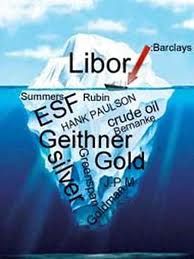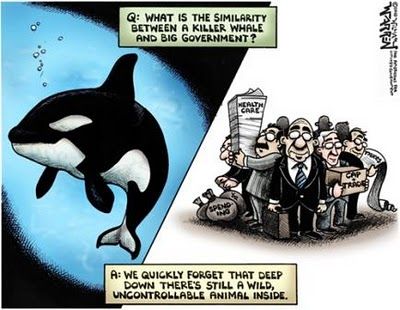In a day long Senate hearing, Ina Drew, the former head of the chief investment office that oversaw the London trading operation, Braunstein, JP Morgan’s former chief financial officer, acting chief risk officer Ashley Bacon and Peter Weiland, Chase’s former head of market risk, appeared to answer questions about it disastrous “London whale” trading loss. Along with high-ranking federal regulators, they face withering questions if front of Senator Carl Levin’s Permanent Subcommittee on Investigations a day after the committee release a damning 300-page report on JP Morgan’s $6.2bn debacle. While the report lays out the evidence that JP Morganwas plating fast and lose with regulations and investor’s money, the report is heavily redacted giving the appearance that even Sen. Levin’s committee is covering for Jamie Dimon and, perhaps higher ups in the White House, under the guise of “protecting the markets.”
In an article by Pam Martens at Wall Street On Parade, she partially reconstructs some of the missing pieces:
Although the “Redacted” stamp has censored much of the relevant information on this stock trading, a few snippets can be pieced together. We learn, for example, that the original budget proposed for stock trading in 2006 was twice that for credit trading. The plan was to trade a maximum of $5 million in credit derivatives and $10 million in stock trading – the specific type of stock transactions have been redacted from the document while those for credit trading have been left in. Since the notionals (face amount) of the credit derivatives eventually grew to hundreds of billions of dollars by early 2012, one has to wonder what the stock-related trading grew to from a proposed $10 million since it was originally slated to be twice as large as credit trading.
Another item that slips through is that “ETFs will also be treated as trading instruments.” ETF is an acronym for “Exchange Traded Fund,” portfolios of stocks that trade on stock exchanges. In a memo dated May 5, 2006 to Jason Hughes at JPMorgan from Roger J. Cole in the Compliance Department, we learn that there is a plan to trade stock market indices. The caveat is given by Cole that: “…compliance approval required before trading in credit/equity indices with less than 20 names as we discussed.”
She concludes that the Senate needs to release the redacted portions of the report to let in some “disinfecting sunshine.” The article also contains and excellent chart of the hierarchy of the International Chief Investment Office that was headed by Javier Martin-Artajo, that blogger bobswern at Daily Kos gives us further incite:
If you take a look at the organizational chart provided by Pam Martens, immediately above, it’s topped-off with Javier Martin-Artajo. The reality was that, at the time, Martin-Artajo reported to JPMC CIO head Ina Drew who, in turn, reported to JPMC CEO Jamie Dimon, among others.
I’ve italicized “others” in the paragraph above this because in-between Ms. Drew and Mr. Dimon was none other than William M. Daley, Vice Chairman of the JPMC Board of Directors, who was, among many other duties including that of chief (unregistered) lobbyist for the bank and Chair of the JPMC Board’s Risk Management Committee, also in charge of supervising the bank’s corporate governance, up until January 9th, 2011, when President Obama appointed Daley as his chief of staff, replacing current Chicago Mayor Rahm Emanuel in that job.
It was fairly widely reported, in early November 2011, that Bill Daley was tacitly demoted in his position as White House Chief of Staff, when he was required to share duties with Pete Rouse. Interestingly, in January 2012, around the time that the first, industry-circulated reports of JPMC’s CIO meltdown appeared in the blogosphere, it was then reported that Daley would be leaving 1600 Pennsylvania Avenue, altogether, later that month.
The readers can draw their own conclusions from there.
Contributing Editor of Rolling Stone, Matt Taibbi, live blogged the hearing giving some amusing observations. In a phone interview with Sam Seder of the Majority Report discussed the testimony:


 That $2 billion
That $2 billion
Recent Comments